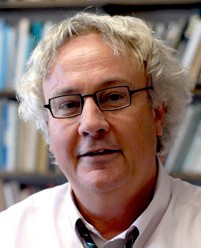 Charles Taliaferro is Professor and Chair of Philosophy at St. Olaf College. We invited him to answer the question “What norms or values define excellent philosophy of religion? as part of our “Philosophers of Religion on Philosophy of Religion” series.
Charles Taliaferro is Professor and Chair of Philosophy at St. Olaf College. We invited him to answer the question “What norms or values define excellent philosophy of religion? as part of our “Philosophers of Religion on Philosophy of Religion” series.
I suggest that philosophical inquiry is similar to, but different from a great deal of scientific inquiry, especially when the latter involves repeatable experimentation, empirical data, predicting physical events. Philosophy can certainly rely on experience (as in phenomenology) and on the natural and social sciences themselves, but, in general, philosophical accounts of values, human practices (from religious to secular), of knowledge-claims, and so on, can involve some formal norms (coherence, logical consistency) and a wide variety of other considerations (from conceptual and/or linguistic analysis to the appeal to intuition). In terms of methodology, I have defended in various places what is called phenomenological realism-in the tradition of Max Scheler and von Hildebrand. This is decidedly different from some in philosophy of mind and philosophy of religion who assume as a methodological framework some form of naturalism. In the book Naturalism co-authored with Stewart Goetz, and in other books such as A Brief History of the Soul, we have argued that both strict and broad forms of naturalism are problematic.
In taking a closer look at the place where science and philosophy diverge, I suggest it is rare for an interesting philosophical position to be tested by empirical experiments. How would one test (for example) externalist vs internalist accounts of justification in epistemology or moral realism or nominalism vs Platonism on abstract objects or even idealism (whether with Berkeley or Hegel)? Well, I suppose the later might be a counter-example as Hegel thought he could determine philosophically the number of planets. But in most arguments in philosophy of religion-from theodicies to the evidential problem of evil versus skeptical theism articulated by William Rowe and Paul Draper, perfect being theology, Buddhist arguments against a substantive account of the self, whether God might be timeless, etc.-it is hard to see how matters might be resolved empirically.
Still, insofar as philosophy of religion is understood to be about religion, it does seem as though scientific inquiry will be needed in order to understand what are claimed by various religious communities, etc; this is, though necessary, not sufficient for philosophical inquiry.
One might also note that the field of philosophy of religion contains ongoing projects involving the appeal to evidence and testing the explanatory power of key positions (commonly this concerns comparing the merits of theism and some form of naturalism). But philosophy of religion also includes philosophers who repudiate appeals to explanatory power and the metaphysics of theism. This has been done by both theists (like John Cottingham and Paul Moser) and non-theists (such as the late D.Z. Phillips) as well as by some who repudiate the theism versus atheism debate (Howard Wettstein, for example, does not self-identify as an atheist or theist). In a sense philosophy of religion may be the most diverse sub-field of philosophy for it draws on all the other sub-fields in the discipline (metaphysics, epistemology, value theory, logic, political philosophy, philosophy of science, even aesthetics, and so on). Insofar as these sub-fields have diversity (say, instrumentalism versus realism in philosophy of science), that diversity often shows up in philosophy of religion.
